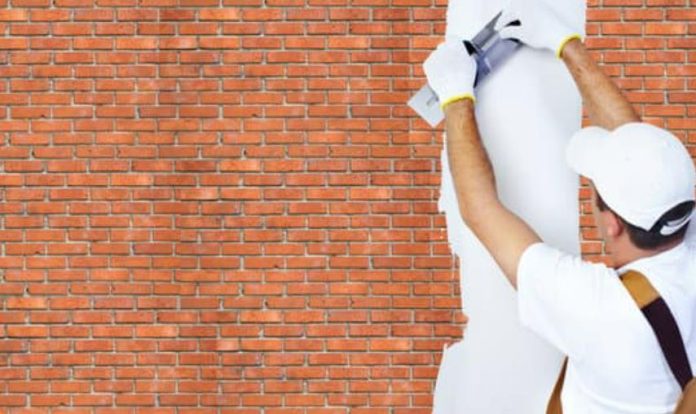Table of Contents
Nowadays, thanks to the rise in the number of people undertaking home improvement projects, the demand for skilled plasterers has greatly increased. So, if you were thinking of becoming a self-employed plasterer, then now is perhaps the best time to get started.
But how can you become a self-employed plasterer in the UK? Keep reading this helpful guide to learn all about setting up your own plastering business.
How to Become a Self Employed Plasterer?
Qualifications
Luckily, you don’t need any formal qualifications to become a plasterer in the UK, so this is a career path that pretty much anyone can follow as long as they have the essential skills. However, getting some qualifications can help you improve the credibility of your business and secure more clients, so it’s worth looking into.

For example, you could do a BTEC, NVQ or Higher National Diploma (HND) – this option is equivalent to two years at university. Doing an apprenticeship is always highly recommended as you’ll learn vital skills you need for your business.
Register your business
As with any new business, you must remember to register your new plastering business with HMRC within 30 days of becoming self-employed. Initially, you’ll probably just work as a sole trader as this is the easiest business structure to start with, but you may decide to set up a limited company instead. As a sole trader, you have full liability if your business gets into debt, so some people prefer to set up a limited company – this business structure may seem more established and trustworthy to potential clients too. However, if you do set up a limited company, you must remember to register it with Companies House.
Taxes

Filing self-assessment tax returns certainly aren’t an enjoyable or rewarding part of being a self-employed plasterer, but it’s important that you get this right. You’ll need to keep track of deadlines for both filing your tax returns and actually paying the bills, and throughout the year, you should set aside enough money to cover your tax bill so you’re not caught out when the deadline arrives. If you’ve set up a limited company, then you’ll pay corporation tax on your profits and income tax on your salary.
Set rates
As a self-employed plasterer, you’ll need to set your own rates since you won’t be earning a salary as someone else’s employee. Your rates will depend on your level of experience, so if you’re just starting out, then you should be charging less than a highly qualified plasterer if you want to secure clients. Over time, you can start charging more to reflect your expertise.
Business Insurance
Don’t forget about business insurance. There are many types of business insurance, and they can all protect you if someone makes a claim against your business or you have substantial costs to cover.

For example, public liability insurance will protect you if someone is injured or their property is damaged as a result of your work, and business contents insurance will cover the cost of your business equipment if it’s damaged or stolen.
Becoming a self-employed plasterer is a fantastic career path. Follow the advice in this article to learn how to set up your own plastering business.


